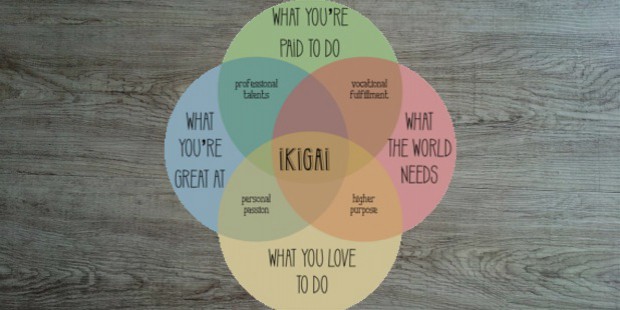Why Work/Life Balance is Overrated

We live in a society that works long and hard. On average, we spend about a third of our lives at work, and most of us pedal hard and fast. As technology makes connecting with colleagues as far away as your nearest device, finding a balance between work and life becomes increasingly challenging. Everyone seems to be in search of the secret sauce for work/life balance. In fact, a Google search on the phrase will produce over 72 million hits and over 500,000 books.
Most of us spend between 40-60 hours each week at work. Unless you’re a trust fund baby, the reality is that we spend more time and energy in professional activities than personal endeavors. Ask 10 people how they feel about their lives at work, and only 3 will tell you that they have fulfilling jobs that are engaging, challenging, personally rewarding and aligned with their talents and skills. According to a 2015 Gallup Poll, more than 70% of Americans are “unhappy, uninspired and disengaged” at work.

Think about that. Three-fourths of the American workforce spend more than 50% of waking hours unhappy, uninspired and disengaged.
It’s tough – no, it’s almost impossible –to be unhappy, uninspired and disengaged at work and then go home to your family with a happy, inspired, and engaged mindset. Is it even possible to balance all of that negativity in a meaningful way? Just ask a spouse or child of someone who is miserable at work.

And since we tend to equate success with our professional achievements rather than our personal ones, work – no matter how bad it is – becomes the driver. Without getting introspective of what drives you and how that impacts your life and your corner of the world, work/life balance is overrated and incomplete at best.
“The heart of human excellence often begins to beat when you discover a pursuit that absorbs you, frees you, challenges you, or gives you a sense of meaning, joy, or passion.” Terry Orlick
The reality is that work is not separate from life; it is a part of life. It can be a meaningful, rewarding part or it can be a distracting, disruptive part. But trying to compartmentalize work from life and balance them as contrasting forces is an exercise in futility. The human brain just doesn’t work that way.
Forget About Finding Balance, Find Your IKIGAI Instead
What is your ikigai? According to the Japanese, we all have one. Pronounced [iki?ai], it is a Japanese concept meaning "a reason for being." The term ikigai combines two Japanese words, iki (??) meaning life or being alive and kai (??) loosely translated as one’s purpose or a reason to get up in the morning. The concept is defined by fundamental elements: passion, mission, vocation, and profession. That little space where all of these elements converge is where you’ll discover your purpose.

Take a few minutes to find your own ikigai. Grab a clean sheet of paper and your favorite pen. Turn off all of the outside noise and quiet your mind. Draw four overlapping circles on a piece of paper. Examine what you love, what you’re great at, what you’re paid to do each day, and what the world needs. Reflect upon those four elements until you find the intersection in the center. When you’ve found that little intersection, you’ve found your purpose.
Every day provides a new opportunity to live in that space.
What if you started each day by looking inside yourself and asking the question, “What can I do today to be in that meaningful space?”
“The two most important days in your life are the day you are born and the day you find out why.” Mark Twain
Instead of striving to balance life and work, strive to find the purpose in what you do as a contribution to your life story. That means looking inside yourself to discover what drives you, what you’re passionate about, and how the world benefits from it. And if you can find a way to get paid to do it, you’re golden.









